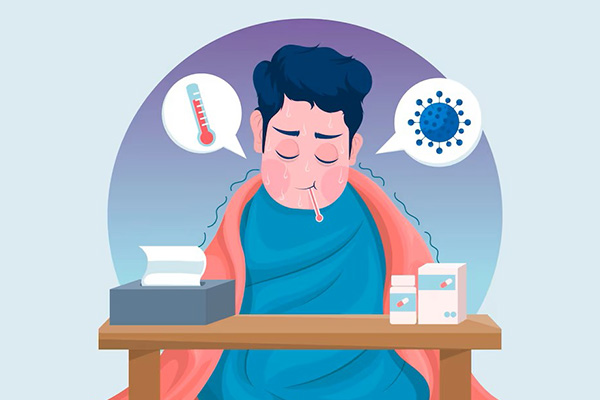 A fever is when your body temperature is higher than your normal average temp. Most providers say a fever is either 100.0 F (37.8 C) or 100.4 F (38 C). When you have a fever, it's your body's normal response to fighting an infection or illness. Fevers usually aren't a serious concern. They typically go away when the infection passes.
A fever is when your body temperature is higher than your normal average temp. Most providers say a fever is either 100.0 F (37.8 C) or 100.4 F (38 C). When you have a fever, it's your body's normal response to fighting an infection or illness. Fevers usually aren't a serious concern. They typically go away when the infection passes.
A fever is when your body temperature rises higher than normal. A fever itself isn't an illness. Rather, it's a symptom of a wide range of health conditions. When your body temperature rises a few degrees above normal, it can be a sign that your immune system has been activated, often to fight an infection. It can also be a side effect of some medications and vaccinations.
In addition to an elevated temperature, you may experience the following symptoms:
Chills, feeling cold, shivering and shaking.
Body aches and headaches.
Fatigue (tiredness).
On and off or constant sweating.
Flushed complexion or hot skin.
Faster heart beats.
An infection occurs when a microorganism — such as bacteria, fungi, or a virus — enters a person's body and causes harm. The effects of infections occur due to the immune system's attempt to get rid of the invading organism.
In many cases, the immune system can stop these pathogens from multiplying in the body. If not, serious damage can result.
The microorganism uses that person's body to sustain itself, reproduce, and colonize. These infectious microscopic organisms are known as pathogens, and they can multiply quickly.Various common infections are
1.Viral
2. Bacterial
3. Fungal
4. Parasitic
Book an Appointment